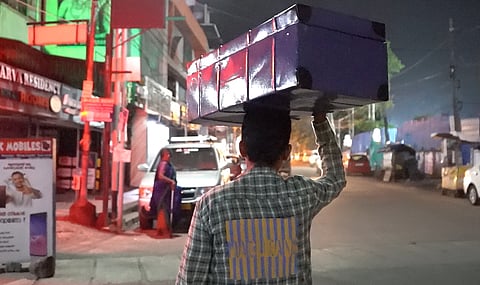Onboard a delayed train, migrant labourers dream of a day their vote will count
It was 5 in the morning on Saturday, May 12 as the Kanyakumari-Dibrugarh Vivek Express pulled into the Ernakulam Town Railway Station in Kerala. The train which serves the longest route in India – Kanyakumari in Tamil Nadu to Dibrugarh in Assam – was late by more than five hours, a delay incurred at the point of departure. A mad scramble ensued as sleep deprived men, mostly migrant labourers, jostled to get into the unreserved compartments, eager to secure a seat.
The delay had made some of them anxious. The superfast train, a lifeline of migrant labourers, was supposed to reach Odisha’s Brahmapur on the morning of May 13, the first of the four phases of elections in the state.
They had already lost a good night’s sleep, huddled on the platform with other half-awake lumps of people who had spread themselves out on the floor, hugging their belongings. Their only hope now was to squeeze onto the edge of a seat in the general compartment or to clamber up the luggage rack, where they could plug in earphones, stare at their mobile screens, forget all creature comforts and settle themselves for the rest of the journey.
Among the crowd was Goura Naik, a man in his early fifties, a metal trunk delicately balanced on his head secured with his right hand and a lidded paint bucket in his left. A native of Surada in Odisha’s Ganjam district, considered one of the largest recipients of remittances from other states, Goura was going home to vote. But voting was not the first thing on Goura’s to-do list, returning as he was after five months in Kochi, where he worked as a mason. The rains were coming and he had farming to do. He also had to meet his son nursing a broken leg after a workplace accident.

